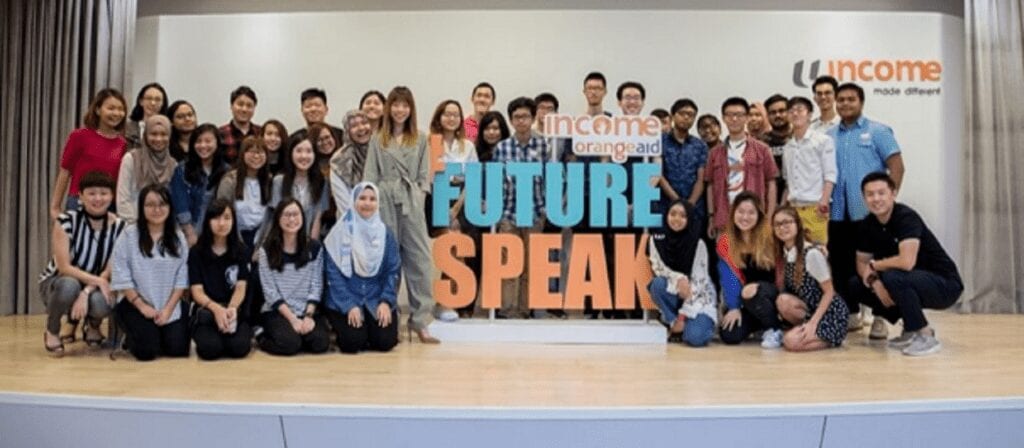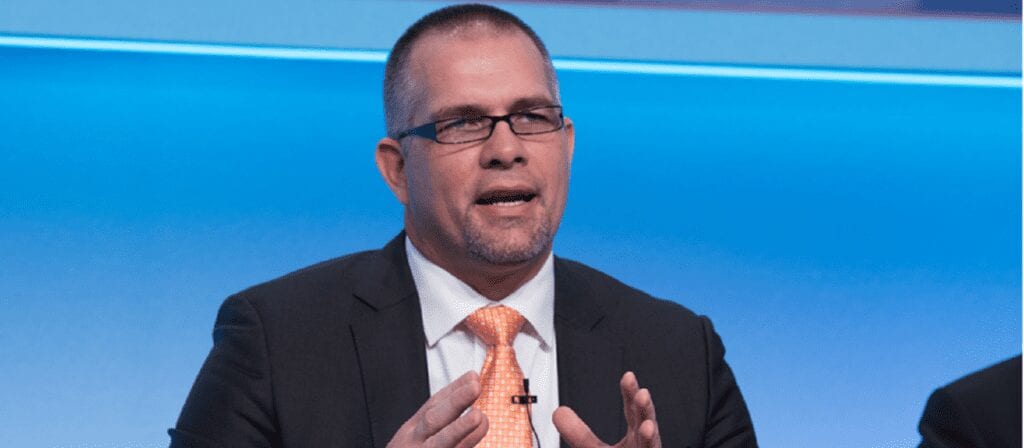Through a resolution adopted in 1999, the United Nations (UN) General Assembly declared 12 August as International Youth Day. The 2018 International Youth Day theme is “Safe Spaces for Youth”.
International Youth Day 2018 aims to promote youth engagement and empowerment by exploring the role of safe spaces in contributing to freedom of expression, mutual respect and constructive dialogue. We invited a number of ICMIF members, all member owned/mutual/cooperative insurers, to share with us what they are doing to provide safe spaces, in their many possible forms, for youth through a wide variety of initiatives and CSR activities.
The UN says that the availability and accessibility of physical and virtual safe spaces can enhance young people’s potential by providing common ground and opportunities for innovation and creativity. Youth need safe spaces where they can come together, engage in activities related to their diverse needs and interests, participate in decision making processes and freely express themselves.
Here are just a few examples from a range of ICMIF members, mutual and cooperative insurers, around the globe which are creating safe spaces for youth :
NTUC Income (Singapore)
Income OrangeAid, the community development arm of Singapore-based ICMIF member NTUC Income (Income), announced earlier this year that it was extending its flagship initiative, the Income OrangeAid Future Development Programme (FDP), for another two years (2018 to 2019). This follows the success of the initiative for the past three years in providing Singaporean students from low-income households studying in polytechnics and Institute of Technical Education (ITE) with bursaries, financial literacy and character development training.
The extended programme would see FDP offering an additional 800 bursaries to support more underprivileged youths with their school fees and living expenses. It has also introduced an Alumni Programme, which includes coaching and facilitator training, to further support current and past FDP beneficiaries.
Mr Marcus Chew, Chief Marketing Officer of Income said, “The extension of FDP underscores Income’s commitment to help youths from low-income families level the playing field in today’s increasingly competitive landscape and to empower them and their families to break out of their disadvantaged circumstances. It is with this aim in mind that we have introduced the Alumni Programme so that we further lend our support in ensuring that these youths become more future ready.”
CARD MRI (The Philippines)
A total of 729,908 scholarship slots and educational assistance were provided by CARD Mutually Reinforcing Institutions (CARD MRI) to clients and their children nationwide through its CARD Scholarship Program (CSP) and Zero Dropout Program under the flagship program, ‘One Family, One Graduate’. For 18 years now, CSP has supported the educational needs of youth (specifically high school, senior high school, vocational program, and college students). Zero Dropout, on the other hand, aims to support clients’ children finish elementary education. “We made sure that through the One Family, One Graduate program, CARD MRI can ensure that for every family it serves nationwide, one will graduate in college,” said Dr. Jaime Aristotle B. Alip, founder and chairman of CARD MRI.
“Providing scholarships is our way also of supporting our clients and their children who are determined to improve their quality of life through education. As long as there are students who are willing to pursue their dreams through education, we will continue this kind of service,” said Jean Pauline B. Landicho, Deputy Director for CARD MRI Partnership and Education.
Every academic year-end, CARD scholar graduates are invited to be employed at CARD MRI. Composed of 21 institutions, CARD MRI is open to accept applicants from all fields of expertise. Both education and employment are significant factors in helping eradicate poverty for both youth and their families, thus ensuring greater safety for both.
Amana Takaful (Sri Lanka)
In the 2017 Annual Report issued by Amana Takaful, the insurer provides an update on its many CSR activities including the company’s flagship programme of Leadership and Personality Development, for students of Walahanduwa President’s Girl’s School, Galle. The company says it recognises that the younger generation holds the key to the nation’s future, and that their talents and accomplishments are instrumental in laying a firm and a sustainable foundation for the students and for Sri Lanka as a whole. Training given to the students is focused on personality development, team building, communication, decision-making, mental and physical robustness all of which help ensure a safer and more secure future for these youth.
CIC Insurance Group (Kenya)
Through its Foundation, the CIC Insurance Group is helping to ensure the safety of youth and thereby impact society in a positive way. In 2016, CIC offered high school education scholarships to bright but needy children, drawn from public primary schools and vulnerable backgrounds across the country, including children from orphanage homes. CIC started this initiative on a small scale and plans on growing it with time. The Board of Trustees is working on a mechanism of carefully selecting these children from all the regions. The CIC Foundation recognises education as a key element in changing society for the better in a sustainable manner.
NFU Mutual – Farm Safety Foundation (UK)
In 2014 NFU Mutual set up the Farm Safety Foundation (a charitable foundation) with the aim of raising awareness of farm safety among young farmers. The Farm Safety Foundation works closely with colleges and universities, young farmers clubs and a range of farming organisations across the UK to raise awareness of farm safety and challenge and change the risk-taking behaviours in the next generation of farmers.
Over the past three years the Farm Safety Foundation has worked with colleges and students to develop a unique half day Introduction to Farm Safety training course. The course is now being delivered at agricultural colleges across the UK. Since May 2015, over 3,000 farming students have received this innovative and engaging training.
The Foundation’s education programme has gone from strength to strength and has been recognised nationally in the Business in the Community Responsible Business Awards and also by the Chartered Institute of Public Relations in the CIPR PRide Midlands Awards for the work they have done training and supporting the next generation.
Zenrosai (Japan)
Since February 2008, Zenrosai has held the “Bosai Cafe (Disaster Prevention Cafe)” which is delivered as a lecture which aims to raise public awareness of disaster risk reduction measures. The events are described as “Full of Fun and Easy to Understand” and are conducted across Japan. These events provide programmes that encourage children, adults, and families to join in a variety of activities from emergency food tasting, lectures by experts, to disaster prevention scientific experiment shows and disaster prevention games and thus be better prepared and safer in the event of a natural disaster.
Zenrosai has also been providing “Story-telling sessions for children” since November 2012. The sessions were originally aimed at fostering psychological care and sound development of the children affected by the Great East Japan Earthquake. A picture book was also produced to show children how to prepare in case of an earthquake and to raise awareness for disaster risk reduction among kids. Zenrosai carries out disaster prevention/mitigation events for youth and their parents throughout Japan.
Zenkyoren (Japan)
Zenkyoren says that it considers its insurance operations and its CSR activities, which include education services to help the prevention of accidents and also mutual aid provision after accidents or natural disasters, to be inseparable. Zenkyoren conducts a number of such activities aimed at promoting health, safety and wellbeing of its members which includes children and youth.
One activity is to support the activities of The Tohoku Youth Orchestra, an orchestra composed of primary, junior high, and high school students from the three prefectures affected most by the 2011 Tohoku disaster: Iwate, Miyagi, and Fukushima. The activities of the Tohoku Youth Orchestra do not stop at performance, however, rather the founders of the orchestra see it as an opportunity for a place of safety and confidence which will encourage the growth of these young people and ultimately create a bright new future for these students to live in.
Other Zenkyoren initiatives for young people include bicycle traffic safety classes for students at junior and senior high schools.
The Co-operators (Canada)
The Co-operators is engaged in a number of programmes to help youth in Canada. One such programme is the organisation’s partnership with Enactus Canada which supports youth mental health and develops sustainability solutions in local communities.
Having heard that mental health is the #1 issue on Canadian post‑secondary campuses, with an estimated 65% of students indicating they have experienced overwhelming anxiety (Source: National College Health Assessment) The Co-operators formed a partnership with Enactus Canada, which aims to help find solutions that better support the mental health of youth aged 18 to 25 and up.
Through Enactus, The Co-operators will help to provide emerging university and college leaders with skills and resources to identify and develop these solutions. The initial goal of a two-year pilot partnership is to focus on creating more resilient Canadian youths, who can better support their own mental health and contribute to the psychological wellbeing of others.
Another project supported by The Co-operators to help provide safe space(s) for youth is the ‘Kids Help Phone’ project. The Co-operators is one of the founding partners for Canada’s first-ever crisis texting service, which helps youth access mental health support in their preferred way.
Kids Help Phone research identified that:
- 42% of youth prefer to write than speak about their problems
- 71% of youth welcome a texting option when discussing their problems
- Non-verbal platforms (e.g., live chats) are more likely to uncover serious, high-risk mental health concerns
Youth will be able to send text messages to a free, easy-to-remember code. The texts will not require a data plan or internet connection, which is especially important for youth in remote or isolated communities where service is limited.
“We are proud to be a founding partner of Crisis Text Line, powered by Kids Help Phone, which provides young people access to effective mental health services and resources in the way they want to connect,” says Barbara Turley-McIntyre, Vice President, Sustainability & Citizenship. “Our partnership with Kids Help Phone will better support the psychological wellbeing of youth, particularly those aged 18 to 25, which will help build stronger communities.”
The Co-operators say that these programmes and others support an overall commitment from the organisation to Canadian youth through multiple initiatives and partnerships.
The ICMIF 5-5-5 Mutual Microinsurance Strategy
The ICMIF 5-5-5 Mutual Microinsurance Strategy aims to develop mutual microinsurance in five countries (India, the Philippines, Kenya, Sri Lanka and Colombia) over five years, reaching out to 5 million uninsured low-income households, equating to 25 million individuals in total. The ultimate objective being to take low-income people out of poverty. Through the provision of mutual insurance cover to previously uninsured households, youth/children will benefit if a parent should unfortunately pass away as there would be a source of income from the insurance cover which would enable them to continue their education and hopefully then prosper. A large proportion of the population in developing markets are currently uninsured youth and the more the 5-5-5 Strategy projects are extended the more youth will have the safety provided by this mutual microinsurance cover.
ICMIF Young Leaders Forum
ICMIF is also keen to support youth at its member organisations and one of our major initiatives in this field is to create a Young Leaders Forum. This is a network of young professionals (generally aged between 20 and 35 years old) at ICMIF member companies who have been identified by their seniors as strong candidates to become future leaders within their organisations. The Forum focuses on the professional and personal development of its members and provides a safe and supportive area for learning and development.
For more information on the ICMIF Young Leaders Forum please contact Ben Telfer, Vice-President, Business Intelligence.






